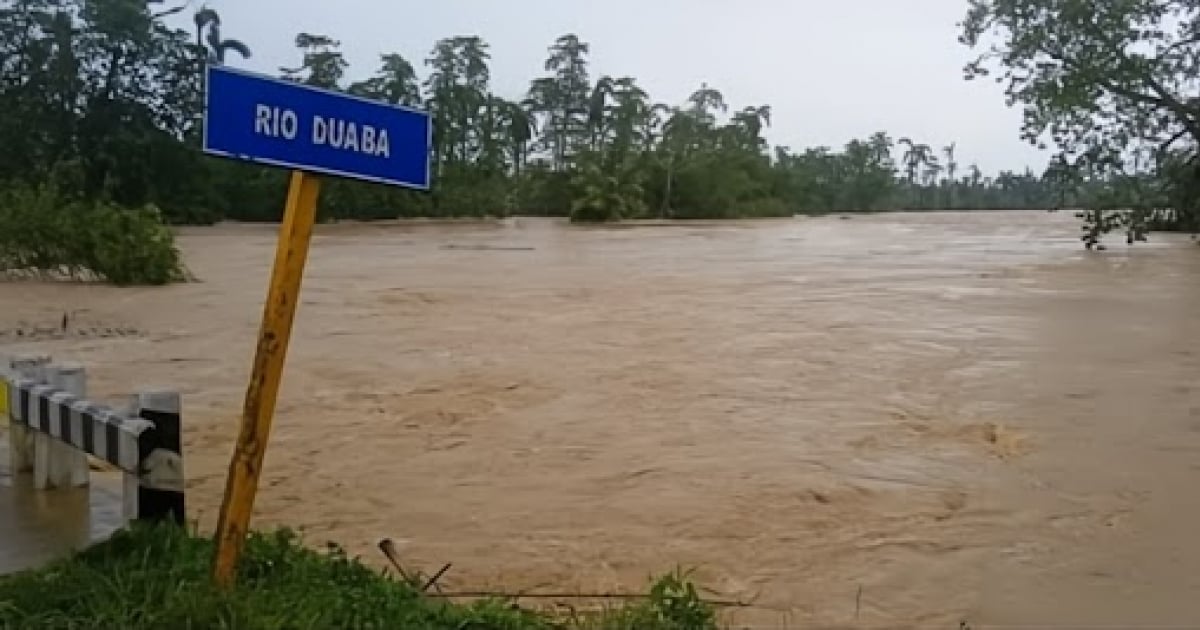The voices of residents from heavily impacted areas such as San Antonio del Sur, Imías, and San Ignacio shed light on the critical missteps they believe could have prevented the crisis plaguing the region and the loss of life following the hurricane. These local accounts offer a candid view of the failings that exacerbated the situation, providing an honest narrative of experiences during and after the storm.
Electricity and Communication Outages
Communities affected by the hurricane were left without power and communication for days, spawning confusion and uncertainty. There was a lack of swift action to restore communication, leaving many people in dire conditions. The blackout on the 18th disrupted communication and response efforts, hindering emergency coordination and aid distribution.
Inadequate Communication and Equipment
The inability to mobilize the "defense council" due to power outages and the lack of radiocommunicators was a significant issue. These devices could have enabled communication independent of electricity or the internet, facilitating better coordination between locations like the dam, the mountains, and the towns. Because of poor leadership, essential equipment was unavailable, preventing timely warnings and effective responses. This communication breakdown left many unaware of the dangers, resulting in a chaotic and disorganized response where some, lacking real knowledge of the risks, attempted to flee to higher ground, leading to tragic drownings.
Poor Fuel Management
A shortage of fuel hindered efforts to reach affected communities or dispatch vehicles to warn residents, delaying rapid response and worsening conditions in remote areas.
Delays in Food Distribution
Mismanagement of stored rice resulted in food spoilage due to untimely distribution, worsening hunger in an already struggling community. The rice owed from September remains undelivered, with October's distribution also delayed, exacerbating food insecurity.
Misjudged Weather Forecasts and Geographic Challenges
The forecast underestimated the rainfall, suggesting it would be "minimal" and posing no threat, skewing perceptions of the storm's severity. However, the region's geographical features intensified the hurricane's impact. Guantánamo's mountains acted as "cloud catchers," enhancing condensation and heavy rainfall. Subterranean rivers, usually hidden, emerged due to the rains, causing sudden floods, especially on clay-rich, impermeable terrain. These natural factors led to the Pozo Azul reservoir, initially at 40% capacity, overflowing within hours, worsening floods in the area.
Rigid State Control Over Aid
The distribution of aid is under strict control by the MININFAR (Ministry of the Interior and the Armed Forces), complicating the timely delivery of supplies to those in need. This control has slowed the process, leaving many without prompt assistance.
The loss of crops and livelihoods is devastating many families who, despite their efforts to continue working, lack electricity and essential resources, hindering economic recovery and food security in the region.
Inadequate Handling of Missing Persons
Reports indicate missing individuals, with searches relying on community members and "popular power" rather than official, systematic efforts. Official figures are unreliable.
The Role of Social Media and Community Efforts
Individuals who have been able to assist during the crisis have turned to social media, finding it "more effective overall" than the television, which was off-air. This grassroots initiative highlights the perceived inadequacy of the government's response.
Challenges in Reaching Those in Need
Many seeking refuge in the mountains had to leave their towns at the last moment, with authorities struggling to provide the necessary aid to these isolated areas.
Lack of resources and organizational inefficiencies have left aid distribution, such as water and food, reliant on personal and local group efforts rather than government action. This scarcity and lack of coordination have led to fragmented and inefficient aid distribution.
The humanitarian crisis in Guantánamo following the hurricane has exposed the government's inefficiency and poor management. Centralized control over aid, insufficient planning, and a lack of resources and equipment have aggravated the situation. Slow food distribution, poor fuel management, and disconnect from the population's needs have plunged Guantánamo into an avoidable crisis. The reliance on individual efforts and social media as primary aid sources underscores the lack of governmental leadership and preparedness, exposing the population to unnecessary risks and a more severe disaster.
